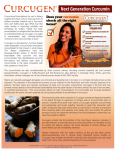L. paracasei may alter intestinal microbiota in healthy people: Study

Italian scientists said gut microbiota composition varied widely among healthy people, meaning past research had struggled to find conclusive associations between probiotic intervention and changes to specific microbial groups.
This latest research, published in the Journal of Nutrition Nutritional Epidemiology, was said to be the first to combine phylogenetic characterisation of gut microbiota with a study that looked at probiotics in healthy participants, a methodology its authors said overcame these previous hurdles.
“This approach confirmed that the probiotic strain L. paracasei DG had a measurable impact on the faecal microbiota, modifying, in particular, specific microbial groups at the phylum and genus levels,” the researchers said.
Faecal butyrate: A potential healthy gut biomarker?
“The intake of L. paracasei DG increased the Blautia:Coprococcus ratio, which, according to the literature, can potentially confer a health benefit on the host.”
However they said the probiotic’s impact on the microbiota and on short-chain fatty acids depended “strictly” on the initial characteristics of the intestinal microbial ecosystem, with faecal butyrate concentrations being a potential biomarker for identifying those who may benefit from such treatment.
Butyrates and other short-chain fatty acids act as food for cells lining the colon and are produced by ‘friendly’ colonic bacteria.
Past literature linked probiotic strain L. paracasei with the remission of symptomatic uncomplicated diverticular disease, an ability to reduce inflammation in colonic mucosa of patients with mild ulcerative colitis as well as reducing the side effects of therapy for Helicobacter pylori eradication. However, its effects on healthy individuals has not been investigated.
Ups and downs of fecal microbiota
The four-week trial looked at the faecal microbiota of 34 healthy volunteers (19 female and 15 male) aged 23–55 before and after the daily consumption of a probiotic capsule containing at least 24 billion viable L. paracasei DG cells, a high dose compared to most comparable commercial formulations.
The results showed an increase in Proteobacteria and the Clostridiales Genus Coprococcus. While a decrease in the Clostridiales Genus Blautia, Anaerostipes and Clostridium was seen.
Past literature linked high incidence of these bacteria to Irritable Bowel Syndrome (IBS), while a low amount of specific bacteria like Coprococci had been reported in autistic children and HIV-infected patients.
“Considering that shifts in certain bacterial populations could be plausibly beneficial in healthy individuals, particularly if these bacterial populations are those affected by disease states, the above references suggest that modulation of the Blautia:Coprococcus ratio [with L. casei] lies in the direction of potential protective ('healthy') microbiota.”
Within this, participants with initial butyrate concentrations of more than 100 millimoles per kilogram in wet faeces saw on average a 49,621% reduction of butyrate and a related decrease in six different Clostridiales Genera - chiefly Faecalibacterium, Blautia, Anaerostipes, Pseudobutyrivibrio, Clostridium, and Butyrivibrio - after probiotic intervention.
However, those with lower butyrate concentrations to begin with, of less than 25 mmol/kg, saw a 329,6255% increase in butyrate, a 55% decrease in Ruminococcus and a 150% increase in an “abundantly represented unclassified Bacteroidales Genus”.
Source: The Journal of Nutrition Nutritional Epidemiology
Published online ahead of print, doi: 10.3945/jn.114.197723
'Modulation of Fecal Clostridiales Bacteria and Butyrate by Probiotic Intervention with Lactobacillus paracasei DG Varies among Healthy Adults'
Authors: C. Ferrario, V. Taverniti, C. Milani, W. Fiore, M. Laureati, I. De Noni, M. Stuknyte, B. Chouaia, P. Riso, and S. Guglielmetti

















